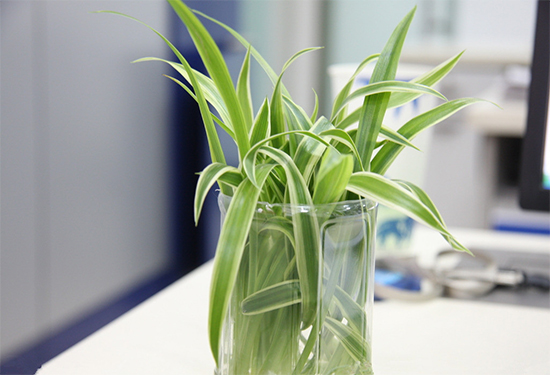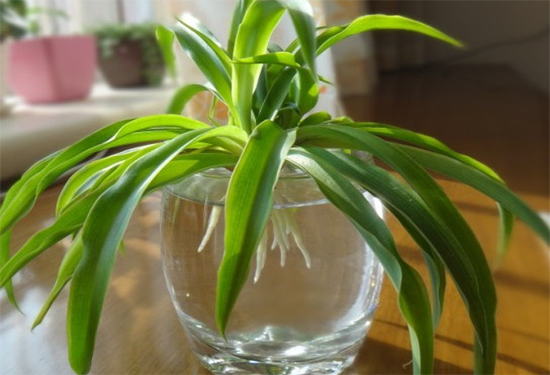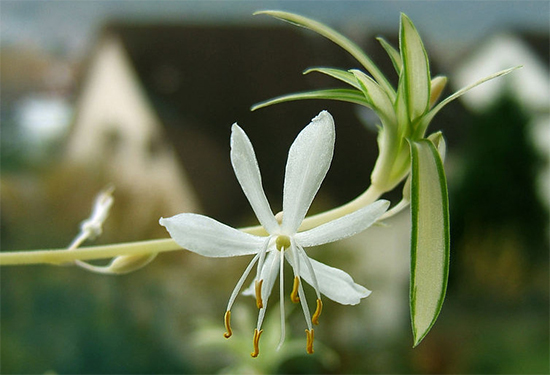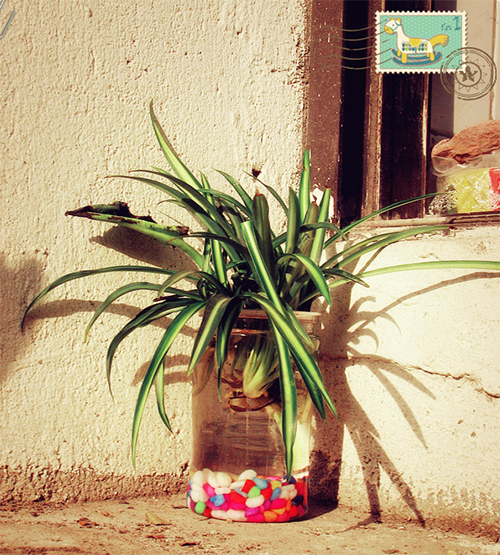Tips on hydroponic Cymbidium and introduction to the Culture method of hydroponic Cymbidium
Cymbidium is one of the most popular indoor foliage plants at present. It is very popular because of its strong nature, fast growth rate and less diseases and insect pests. However, the hydroponic culture of Cymbidium has higher requirements for nutrient solution, especially when the air relative humidity is slightly lower, it is easy to appear leaf tip drying phenomenon (commonly known as dry tip), which is the main reason that seriously affects the ornamental value of potted Cymbidium. The technology of hydroponic hanging orchid makes the problem of dry tip of hanging orchid easily solved and has high ornamental value.
[recommended reading] the method of hydroponic culture of Rabdosia angustifolia the culture method of jasmine
Tips on hydroponic Cymbidium and introduction to the Culture method of hydroponic Cymbidium
-

Preparation process of hydroponic suspension orchid
-
◆ seedlings: shade-resistant and skinny flowers should be chosen.
◆ floral apparatus: choose a small container in the early stage, and then change to a larger glass container after the root is long.
◆ flower fertilizer: about 10 days to add nitrogen, phosphorus and potassium to 3:1:1 liquid fertilizer.
◆ water training basket: because it is more troublesome to go out and find ready-made ones.
Culture method of hydroponic Cymbidium
-
The main results are as follows: 1. Hydroponic Cymbidium had better choose the aerial root of the plant on the walking stem (stolon) for planting, because the aerial root on the walking stem is very suitable for hydroponic environment and easy to manage. Cymbidium can sprout roots in water for about 5 days.
2. The original stout fleshy roots will rot when they are hydroponically cultured by root washing method or split method. The water must be changed every day, the roots must be cleaned and the rotten roots must be removed. The new roots can grow in the rhizome part of about 25-30 days, and the old roots can gradually adapt to the hydroponic environment and no longer rot, which can be cultivated with nutrient solution at this time.
3. When the orchid is hydroponically cultivated, it is appropriate to choose the variety of green leaves, and it is more difficult to operate it.

Hydroponic Magnolia nutrient solution
-
As long as the seedlings with tillers in the middle of the tufted leaves are cut and inserted in clean water, white fleshy roots will appear after three days. These translucent fleshy roots can significantly increase the ornamental value of hydroponic orchids. If you want your orchid to keep growing new leaves, you must also keep changing water for it every day. Every other month, the application of 1/10000 nutrient solution is very important to keep the leaves bright. It is best to use a special nutrient solution for soilless cultivation of foliage plants, and pay attention to the fact that too high fertilizer concentration may cause fertilizer damage.

Tips for hydroponic culture of Magnolia
-
A hydroponic hanging orchid managed properly can maintain its ornamental value for two or three years. So be very careful when hydroponics, the following tips for hydroponics can be noted: glass containers are suitable for planting individual flower and leaf orchids, and the silky white roots can be seen in transparent containers, which feel very elegant; plump ceramic containers, we should plant a few more plants of the same variety in a clump way to create exuberant vitality. However, different varieties of hanging orchids can not be used in the same basin at the same time, so as not to cause competition and destroy the appearance. If there are conditions, we can consider using several foliage plants at the same time to improve the ornamental value.

Conclusion: now, in order to increase the ornamental value and fun, many flower friends of aquaculture will choose to put one or two fish in the hydroponic container for flower-fish co-culture, which is limited to the small size and beauty of the container. Koi is generally selected for culture, while providing nutrition for hydroponic magnolia, don't forget to feed the fish.
[
- Prev

Do hydroponic plants need to change water? How to change water for hydroponic plants?
Do hydroponic plants need to change water? How to change water for hydroponic plants?
- Next

Why does evening primrose blossom at night? What time does evening primrose blossom?
Why does evening primrose blossom at night? What time does evening primrose blossom?
Related
- Wuhan Hospital Iron Tree Blooming Result Was Instantly Frightened by the Gardener Master
- Which variety of camellia is the most fragrant and best? Which one do you like best?
- What is the small blue coat, the breeding methods and matters needing attention of the succulent plant
- Dormancy time and maintenance management of succulent plants during dormancy
- Minas succulent how to raise, Minas succulent plant pictures
- What are the varieties of winter succulent plants
- How to raise succulent plants in twelve rolls? let's take a look at some experience of breeding twelve rolls.
- Attention should be paid to water control for succulent plants during dormant period (winter and summer)
- Watering experience of twelve rolls of succulent plants
- Techniques for fertilizing succulent plants. An article will let you know how to fertilize succulent plants.

